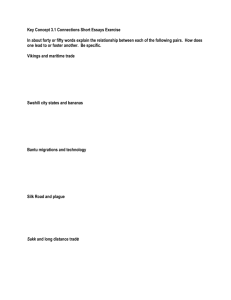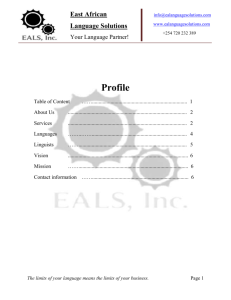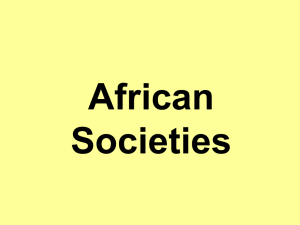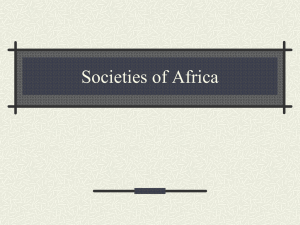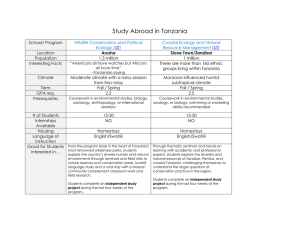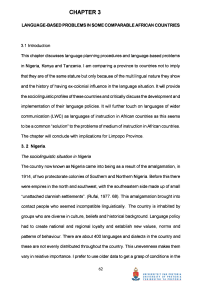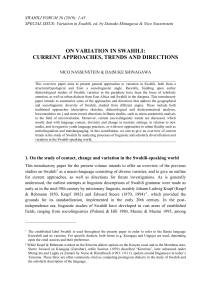Cameron offers Swahili course; only university in Oklahoma to do so
advertisement
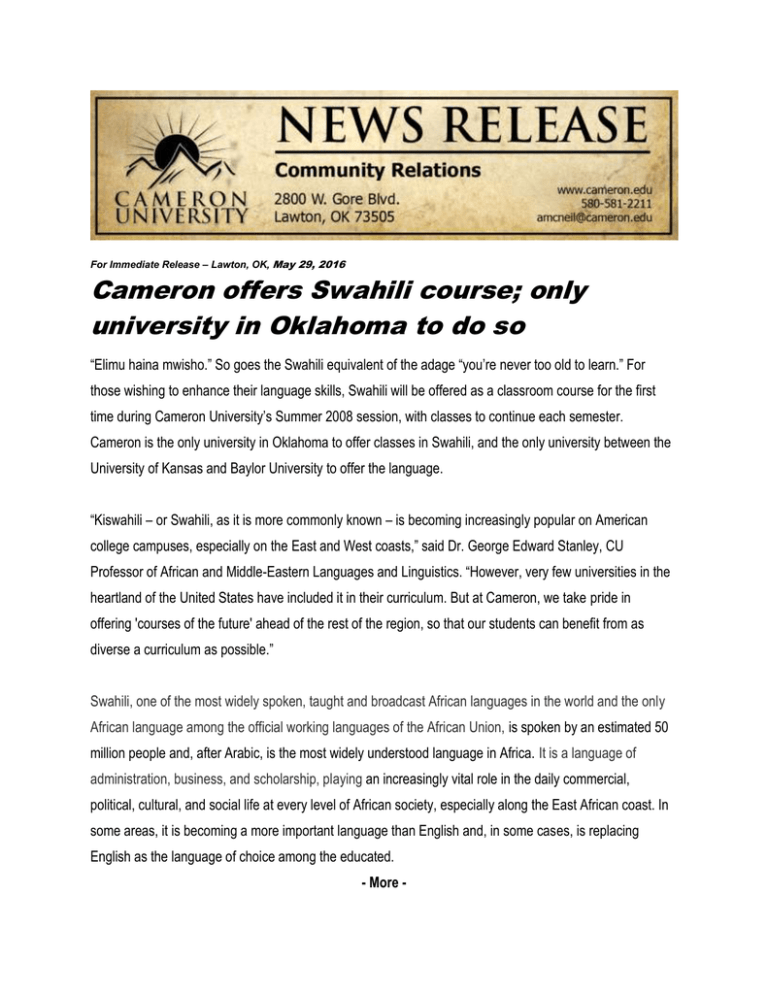
For Immediate Release – Lawton, OK, May 29, 2016 Cameron offers Swahili course; only university in Oklahoma to do so “Elimu haina mwisho.” So goes the Swahili equivalent of the adage “you’re never too old to learn.” For those wishing to enhance their language skills, Swahili will be offered as a classroom course for the first time during Cameron University’s Summer 2008 session, with classes to continue each semester. Cameron is the only university in Oklahoma to offer classes in Swahili, and the only university between the University of Kansas and Baylor University to offer the language. “Kiswahili – or Swahili, as it is more commonly known – is becoming increasingly popular on American college campuses, especially on the East and West coasts,” said Dr. George Edward Stanley, CU Professor of African and Middle-Eastern Languages and Linguistics. “However, very few universities in the heartland of the United States have included it in their curriculum. But at Cameron, we take pride in offering 'courses of the future' ahead of the rest of the region, so that our students can benefit from as diverse a curriculum as possible.” Swahili, one of the most widely spoken, taught and broadcast African languages in the world and the only African language among the official working languages of the African Union, is spoken by an estimated 50 million people and, after Arabic, is the most widely understood language in Africa. It is a language of administration, business, and scholarship, playing an increasingly vital role in the daily commercial, political, cultural, and social life at every level of African society, especially along the East African coast. In some areas, it is becoming a more important language than English and, in some cases, is replacing English as the language of choice among the educated. - More - Swahili, page 2 In the U.S., Swahili has become arguably the most popular African language, as numerous AfricanAmericans have adopted it as the language of their heritage. Others who study the language are preparing for field work in east Africa in nursing or public health or are majoring in global studies or history. CU’s courses in Swahili are taught by Stanley, who is an active member of the African Language Teachers Association, the National Council of Less Commonly Taught Languages, the American Association of Teachers of Arabic, the American Association of Teachers of Persian, the American Association of Teachers of Turkic Languages, the American Institute for Yemeni Studies, the Middle East Studies Association and the Syrian Studies Association. Dr. Stanley’s proficiency in foreign languages is evidenced by the courses he has taught, which include all the Germanic and Romance languages, Afar, Albanian, Arabic, Azerbaijani, Bemba, Czech, Dari, Hausa, Indonesian, Javanese, Kazakh, Kikongo, Kurdish, Kyrgyz, Lingala, Malay, Oromo, Pashto, Persian, Polish, Russian, Somali, Swahili, Tagalog, Tausug, Tajik, Turkish, Turkmen, Uighur, Urdu, Uzbek, Xhosa, Yoruba, and Zulu. – ### – PR# 08-067 Editors and Broadcasters: For more information, contact Janet E. Williams, Director of Media Relations, in the Office of Community Relations at 580.581.2211. . .
